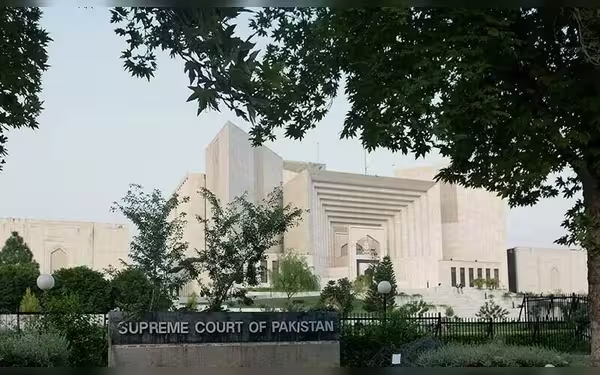Saturday, November 16, 2024 05:28 PM
Supreme Court Prioritizes Ballots Over Election Forms in Pakistan
- Supreme Court rules ballots are primary evidence of election results.
- Forms 45 and 47 do not determine final vote counts.
- Election integrity emphasized amid PTI's claims of compromised mandate.
 Image Credits: dawn
Image Credits: dawnSupreme Court of Pakistan rules that ballot papers take precedence over election forms, reinforcing electoral integrity amid ongoing disputes.
In a significant ruling on Wednesday, the Supreme Court of Pakistan emphasized the importance of ballot papers in determining election results, stating that they take precedence over Forms 45 and 47. This decision comes amid ongoing disputes regarding the legitimacy of the February 8 elections, particularly concerning the claims made by the Pakistan Tehreek-e-Insaf (PTI) party, which alleged that its electoral mandate was compromised.
The Supreme Court's ruling was delivered by a three-judge bench led by Chief Justice Qazi Faez Isa. The court was addressing a challenge brought forth by Ghulam Rasool, who contested the results of the Balochistan Assembly’s PB-14 constituency. The controversy arose after the Quetta Election Tribunal ruled in favor of Muhammad Khan Lehri from the Pakistan Muslim League-Nawaz (PML-N), dismissing Rasool's claims.
Forms 45 and 47 play crucial roles in the election process. Form 45 is prepared by the presiding officer at each polling station, detailing the vote count, while Form 47 consolidates the results from all polling stations in a constituency. However, the Supreme Court clarified that these forms are not the final word on the vote count. Instead, the actual ballot papers serve as the "primary evidence" of the election outcome.
The court's judgment highlighted that if there is a request for a recount, the actual votes cast must be considered. The ruling stated, "The ballot papers which are cast is the primary evidence of the election result," reinforcing the idea that the integrity of the ballots is paramount. The court also noted that if the seals on the ballot bags are found to be tampered with, it could compromise the sanctity of the votes, although this was not the case in Rasool's appeal.
During the hearings, presiding officers testified, and the parties involved had the opportunity to cross-examine them. Despite extensive questioning, no wrongdoing was established against the officers, nor was it proven that the forms presented by Rasool were authentic. The recounting process, which was allowed, showed that while the votes for both candidates were adjusted, Muhammad Khan still won by a margin of 1,919 votes.
The Supreme Court ultimately upheld the election tribunal's decision, concluding that the allegations made by Rasool were unsubstantiated and that the election results were fair. This ruling underscores the judiciary's commitment to ensuring electoral integrity and the importance of adhering to established procedures in the electoral process.
The Supreme Court's ruling serves as a reminder of the critical role that ballot papers play in elections. It reinforces the principle that the actual votes cast are the most reliable indicators of public will. As Pakistan continues to navigate its democratic processes, this decision may help restore faith in the electoral system, ensuring that future elections are conducted with transparency and fairness.













